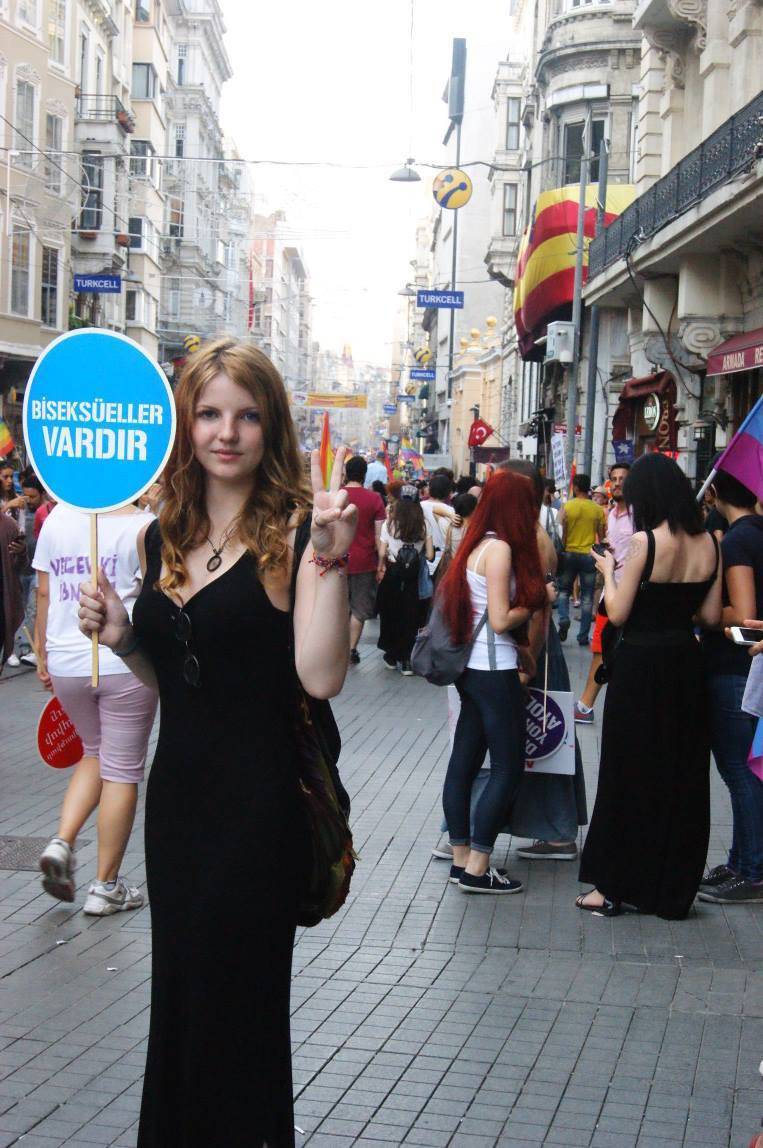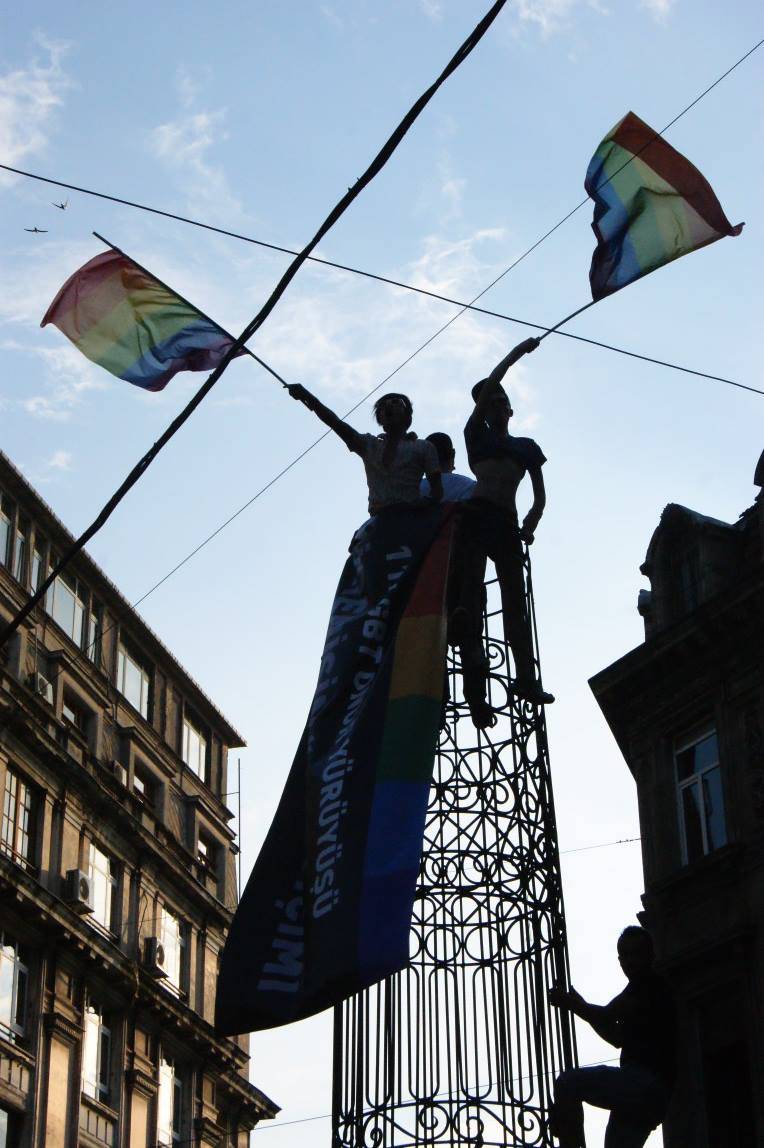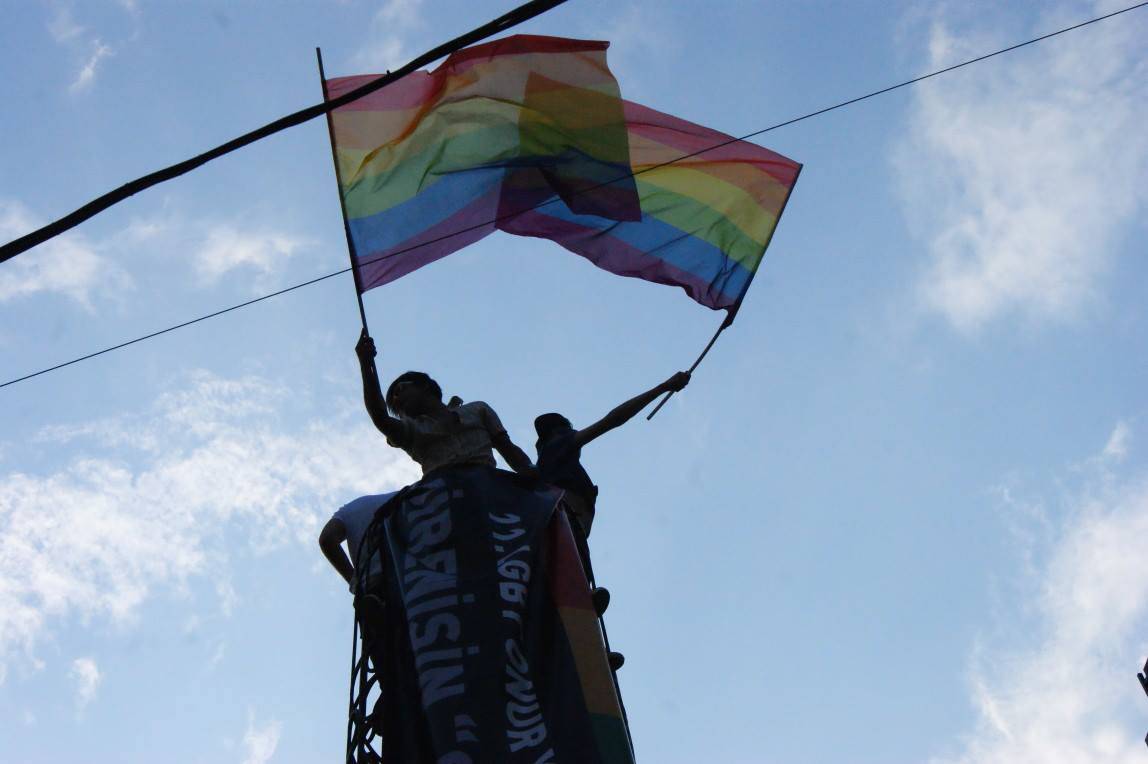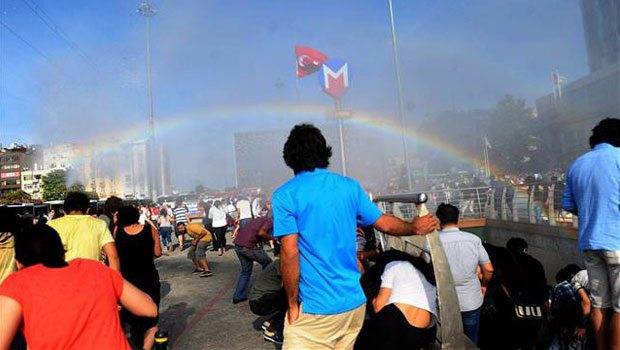
You Can Take Our Parade, But You Can’t Take Our Pride
By Sabrina Aytac, Immersive Labs
Most people wouldn’t expect their first pride parade to be in the middle of nationwide demonstrations and civil unrest. But that’s what happened to me. It’s a memory that’ll stay with me forever.
I grew up in a country where I didn't see any positive (or even neutral) representations of LGBT+ people. It was seen as scandalous. Words relating to sexual orientation or identity were regularly thrown about as insults, often in irrelevant contexts. Growing up in this culture, you wouldn't know that it's normal to be queer or that it's even a possibility for yourself.

There are many personal stories that I and many others can share about how hard – and at times horrifying – it is to be queer in a culture like this. However, there’s a positive message here and it needn't be tarnished by those stories.
My mother was the first person I told when I realized I was bisexual. In some ways I was "luckier" than others: I dated boys and was able to pass off as straight in the years that it took me to pluck up the courage to approach another girl.
That courage came shortly after my first pride parade.

It was a hot summer in 2013 and the trendiest accessory of the season was the gas mask. The police attacked the public all over the country, using tear gas bombs, armoured water cannons that go by the name “intervention vehicle against social incidents”, and rubber bullets. A small part of the reason for this unrest was that people weren’t happy with the oppression of LGBT+ folks. Three years after I'd come out to my mum, she was still one of the only people who knew and the only person with me that day. We’d stayed the night at a family friend's house so we’d have time to visit a jewelry store before the parade started. Sometime soon after I'd come out to her, I’d bought a handwoven bracelet in the colors of the rainbow. It was my way of showing who I am without speaking it. After some three years of wearing it, it had started to fall apart. The shop I bought it from happened to be on the street where the parade was to be held.
We set off to the shop first thing in the morning. I'd hoped that it would also be early enough for me to get my hands on one of those huge rainbow flags. On the way there we passed by a group of people preparing for the parade and all the flags had already been handed out. When we got to the shop I noticed that there weren't any rainbow bracelets, and the shopkeeper was unfamiliar to me. I explained that I was there for the pride parade and was looking for a rainbow bracelet. I also happened to mention that I hadn't been able to grab a flag in time. This was the first time I casually implied to someone that I'm queer. There was something about the energy I felt that morning that allowed me to be more open. He assured me that he could make me a bracelet and told me to come back in a week.

There were picket signs up for grabs. I chose the one that said "Bisexuals exist" while my straight cis mother carried the words "Trans people exist". The parade was unlike anything I'd experienced before. There were demonstrators, activists, and an infamous group of football fans kitted in their jerseys who showed up as allies. There were a handful of loud and scary opposers, but most importantly there were people like me. They were out and proud as can be. My favorite chant was "Don't stay quiet, shout out, homosexuals exist!" Another was someone shouting "Where are you, my love?" through a megaphone followed by the crowd replying "I'm here, my love!" in unison. We even chanted at the counter-protestors, embracing a homophobic slur to show that they can't get under our skin. Despite the show of opposition, I felt like I was in a safe space. The atmosphere radiated joy, spunk, and a sense of indomitable queerness. There was no need for me to shy away.

A week later I went back to pick up my new bracelet. The shopkeeper had made me two, just in case. He also said "I've got something for you", and produced a neatly folded rainbow flag out of his backpack. He'd found it on his way home on the day of the parade and held onto it for me. That was one of the last legal pride parades in the country. It’s since been met with police brutality, but that hasn’t broken people’s spirits. In fact, I think the opposite is true: I believe it’s made people more indignant than ever. They are unwavered and more outspoken than before. I see people who once used LGBT+ terms as insults now defending our rights, accepting us. I see the normalization of LGBT+ folks.
Since that summer's day in 2013, I have been out and proud. The pride parade did that for me. In fact, that parade was a turning point for much of the LGBT+ community in the country, whether it was their first parade, one of many, or they didn't attend at all. Prominent LGBT+ groups made a joint statement in later years saying, "When pride week ended in 2013, we knew we would never feel alone again." That was largely due to the presence of various groups showing up as allies during the parade and the strong display of social unity. Taking the parade from the people has not taken away their pride. It has strengthened it. I'm not only proud of who I am, but of all the people who continue to fight and show their true colors.

